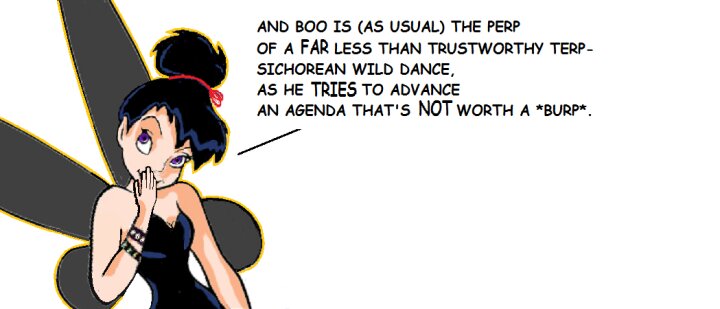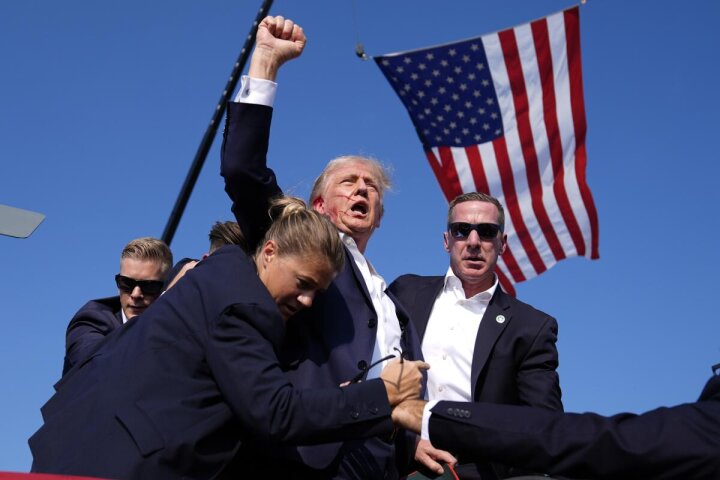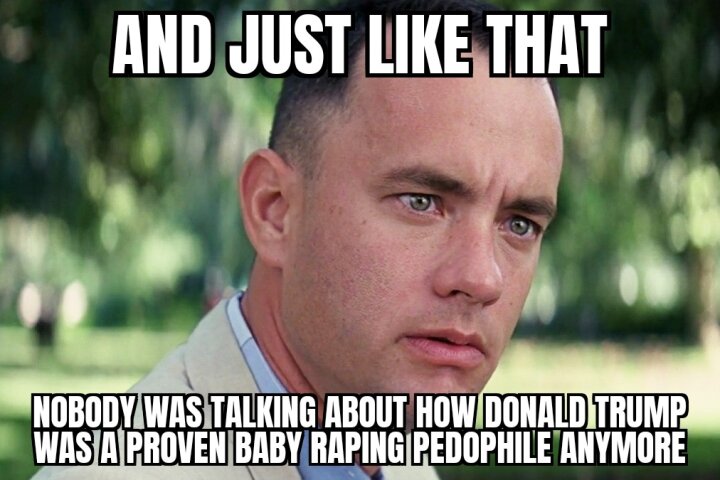Will this help or hurt Trump? History doesn't give much insight.
I've already posted about assassination attempts on presidents. Thanks to the historians at electoral-vote.com, here's the history of assassination attempts on presidential candidates. There's no real pattern and this doesn't tell us a whole lot about what to expect now. My personal view is that this will have no effect on Trump's support. He will see a boost next week from the convention (which is true for every candidate) and the shooting is too close to the convention to make it possible to tell if the increase in support is due to that or the inevitable effect of the convention itself. We'll then see a jump in support for Biden from the Democratic convention.
This is why a week is a long time in politics. 24 hours ago, nobody could have predicted this, and 12 hours ago, nobody knew that the shooter was a registered Republican. One problem with this being so close to the convention is that more information about the shooter - his motivations, his associates, etc. - will come out over the next week, taking attention away from the convention itself.
Abraham Lincoln, 1864: Because of the oppressive summer heat in Washington, Lincoln tended to spend summer nights at the soldiers' home a few miles out of town. During one late-night trip in August of 1864, an unknown assailant shot at the President and hit his stovepipe hat. This incident was not widely publicized at the time, and played no role in the election a couple of months later.
Franklin D. Roosevelt, 1933: In February, a mentally imbalanced Italian immigrant named Giuseppe Zangara took several shots at FDR while he was in Miami. Roosevelt was unhurt, but Mayor Anton Cermak of Chicago was wounded, and ultimately succumbed to his injuries. This did not affect the election because Roosevelt was already president-elect by that time.
Theodore Roosevelt, 1912: During his third-party Bull Moose run, Roosevelt was shot in Milwaukee by barkeeper John Schrank. Schrank did it because he said the ghost of William McKinley told him to. Not surprisingly, he was deemed insane and sent to an institution. As to TR, maybe he got a sympathy bounce and maybe he didn't; they didn't have polls back then. However, he definitely did not win the election.
Harry S. Truman, 1948: During Truman's only presidential campaign, militant Zionists sent a few mail bombs to the White House. This played no role in the campaign, as it was not publicly disclosed until the 1970s.
Robert F. Kennedy, 1968: As every reader presumably knows, Bobby was shot and killed in June, shortly after winning the California primary. Obviously, he did not win that election. Nor did the Democrat who eventually got the Party's nomination, Hubert Humphrey.
Richard Nixon/George Wallace, 1972: A man named Arthur Bremer wanted to assassinate Nixon, but came up short because it was just too hard to make the attempt. So, he switched his focus to third-party racist candidate George Wallace, and managed to wound the then-governor of Alabama, leaving Wallace paralyzed for the rest of his days. Nixon did win that election, but in a landslide, and besides, the fact that he was Bremer's first target was not widely known until after the election.
This is why a week is a long time in politics. 24 hours ago, nobody could have predicted this, and 12 hours ago, nobody knew that the shooter was a registered Republican. One problem with this being so close to the convention is that more information about the shooter - his motivations, his associates, etc. - will come out over the next week, taking attention away from the convention itself.
Abraham Lincoln, 1864: Because of the oppressive summer heat in Washington, Lincoln tended to spend summer nights at the soldiers' home a few miles out of town. During one late-night trip in August of 1864, an unknown assailant shot at the President and hit his stovepipe hat. This incident was not widely publicized at the time, and played no role in the election a couple of months later.
Franklin D. Roosevelt, 1933: In February, a mentally imbalanced Italian immigrant named Giuseppe Zangara took several shots at FDR while he was in Miami. Roosevelt was unhurt, but Mayor Anton Cermak of Chicago was wounded, and ultimately succumbed to his injuries. This did not affect the election because Roosevelt was already president-elect by that time.
Theodore Roosevelt, 1912: During his third-party Bull Moose run, Roosevelt was shot in Milwaukee by barkeeper John Schrank. Schrank did it because he said the ghost of William McKinley told him to. Not surprisingly, he was deemed insane and sent to an institution. As to TR, maybe he got a sympathy bounce and maybe he didn't; they didn't have polls back then. However, he definitely did not win the election.
Harry S. Truman, 1948: During Truman's only presidential campaign, militant Zionists sent a few mail bombs to the White House. This played no role in the campaign, as it was not publicly disclosed until the 1970s.
Robert F. Kennedy, 1968: As every reader presumably knows, Bobby was shot and killed in June, shortly after winning the California primary. Obviously, he did not win that election. Nor did the Democrat who eventually got the Party's nomination, Hubert Humphrey.
Richard Nixon/George Wallace, 1972: A man named Arthur Bremer wanted to assassinate Nixon, but came up short because it was just too hard to make the attempt. So, he switched his focus to third-party racist candidate George Wallace, and managed to wound the then-governor of Alabama, leaving Wallace paralyzed for the rest of his days. Nixon did win that election, but in a landslide, and besides, the fact that he was Bremer's first target was not widely known until after the election.























